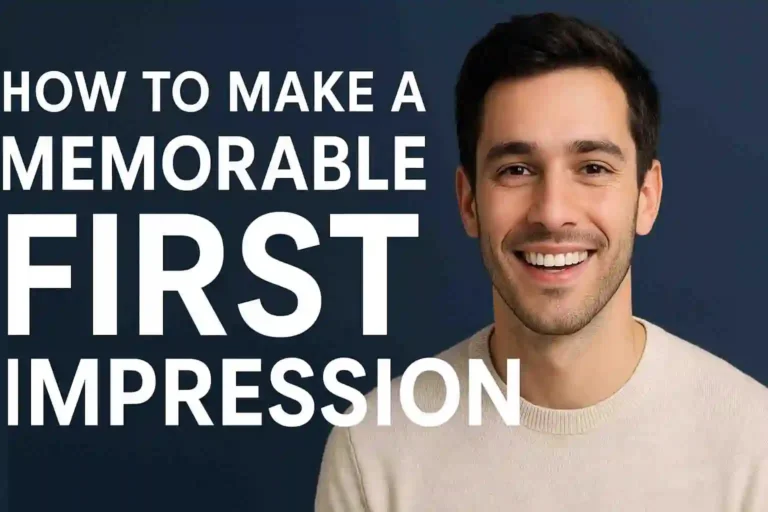How to Stop Oversharing: Smart Ways to Set Boundaries
Learning how to stop oversharing can save you from awkward moments, damaged relationships, and even privacy issues. In today’s fast-paced world of texting, chatting, and posting online, it’s easy to say too much without meaning to. Oversharing in casual conversations may seem harmless, but it can lead to embarrassment, misunderstandings, or discomfort for others. In this guide, we’ll show you how to share wisely, set boundaries, and protect your emotional space — all in simple words and real-life examples.
This article will help you understand what oversharing is, why people do it, and how to avoid it in everyday chats. You’ll also learn how to stay confident and protect your privacy, without sounding rude or cold. We’ll use simple definitions and real-life examples, so everything is easy to understand and apply right away.
What is Oversharing?
Oversharing means revealing too much personal information, especially in a setting that doesn’t call for it. This could be in a casual conversation with a coworker, chatting with a new friend, or even during small talk at a party.
Example:
Imagine you’re at work and someone asks how your weekend was. Instead of saying you relaxed or went out with friends, you start talking about a fight you had with your partner and how it made you cry all night. That’s oversharing — giving more information than the situation needs.
Oversharing can make people feel awkward or unsure of how to respond. It can also hurt your professional image or personal boundaries.
Why Do People Overshare?
There are many reasons people overshare. Some do it because they’re nervous. Others might think being open makes them more likable. And sometimes, it just happens out of habit.
Here are a few common reasons:
- Looking for validation: Wanting others to approve or agree with your feelings.
- Poor boundaries: Not knowing what’s okay to share and what’s better kept private.
- Feeling lonely: Wanting to connect deeply and quickly with others.
- Not knowing the setting: Forgetting that some topics don’t fit casual chats.
Why It’s Important to Learn How to Stop Oversharing
Avoiding oversharing isn’t about being fake or hiding your true self. It’s about healthy emotional boundaries, which protect your energy, relationships, and reputation.
Here’s what can go wrong with oversharing:
- People may judge you unfairly or see you as unprofessional.
- Your words might be used against you, especially in workplaces or online.
- It can make others feel uncomfortable or unsure how to respond.
- You may regret it later and feel exposed or embarrassed.
Plus, in many social situations, less is more. It’s okay to keep things light and surface-level, especially when you’re just getting to know someone.
How to Know If You’re Oversharing
Ask yourself a few quick questions:
- Did they ask for this level of detail?
- Would I be okay if this was repeated to someone else?
- Is this the right time and place for this topic?
- Am I sharing this to build connection, or because I’m feeling anxious or lonely?
If you’re not sure, it’s better to hold back and keep things simple.
Practice Mindfulness to Understand How to Stop Oversharing
Here are practical ways to stop oversharing, without feeling like you’re holding everything inside:
1. Know Your Audience
Think about who you’re talking to. Sharing something personal with a close friend is different from chatting with a coworker, acquaintance, or someone you just met online. Protect your online privacy in conversations by remembering that not everyone needs to know everything.
2. Use the “One-Sentence Rule”
Try answering questions with just one sentence first. If the other person wants more detail, they’ll ask. This helps you stay in control of how much you share.
Example:
They ask: How have you been?
You answer: It’s been a bit of a tough week, but I’m getting through it.
If they want to know more, they’ll ask. If not, you’ve kept it balanced.
3. Pause Before You Speak
Sometimes, just taking one second to think can stop an overshare. Ask yourself: Does this need to be said right now? Could it make someone uncomfortable?
This helps you communicate effectively while protecting your boundaries.
4. Shift the Focus
If you feel like you’re about to overshare, turn the attention to the other person. Ask them a question or let them talk about their experience. It’s a smooth way to change direction and stay connected.
5. Save Deep Talks for the Right Time
Talking about your emotions and struggles is healthy, but not in every setting. Save deeper talks for friends you trust, therapy sessions, or when someone truly invites that kind of honesty. It’s one of the most important mental health self-care tips you can follow.
6. Keep it Light in Casual Chats
Casual conversations — at work, at social events, or in group chats — are better with light topics. Talk about hobbies, weekend plans, travel, shows, or fun experiences. These topics are safe, engaging, and help build connections.
Example:
Instead of talking about your financial problems, talk about a new book you’re reading or a trip you’d love to take.
7. Learn to Say No Gently
Sometimes people ask questions that feel too personal. It’s okay to say, I’d rather not talk about that right now, or That’s something I’m still processing.
Real-Life Oversharing Scenarios (And Better Ways to Respond)
Overshare:
In a group chat: My ex just blocked me and I cried all night. Why do people treat others like this?
Better:
In a group chat: Breakups are hard, but I’m trying to stay positive. Anyone have show recommendations?
—
Overshare:
At work: My anxiety is so bad I couldn’t sleep for days, and I think I need to change my medication again.
Better:
At work: It’s been a stressful week, but I’m working on managing it better. Hope your week is going well!
—
Overshare:
With a new friend: I never really recovered from losing my pet two years ago. It still breaks my heart.
Better:
With a new friend: I really loved my pet — it’s amazing how animals can mean so much to us.
These responses still feel real and honest but don’t create discomfort or emotional overload.
Final Thoughts
Avoiding oversharing doesn’t mean being fake or hiding your feelings. It means choosing the right time, place, and person to share your deeper thoughts. You can still be warm, kind, and engaging — just with healthier emotional boundaries.
When you master the art of sharing just enough, you feel more in control, protect your emotional energy, and build stronger, more respectful relationships.
Mastering how to stop oversharing isn’t about hiding — it’s about respecting your space. So next time you’re in a casual chat, pause for a second. Share just enough. And remember, keeping some things to yourself isn’t cold — it’s wise.
Related Article: How to Say No Without Feeling Guilty and Stay Kind — Master the art of setting gentle boundaries without losing kindness.
Share your favorite moments with us on Instagram!
Don’t keep this to yourself—share it with a friend!
























